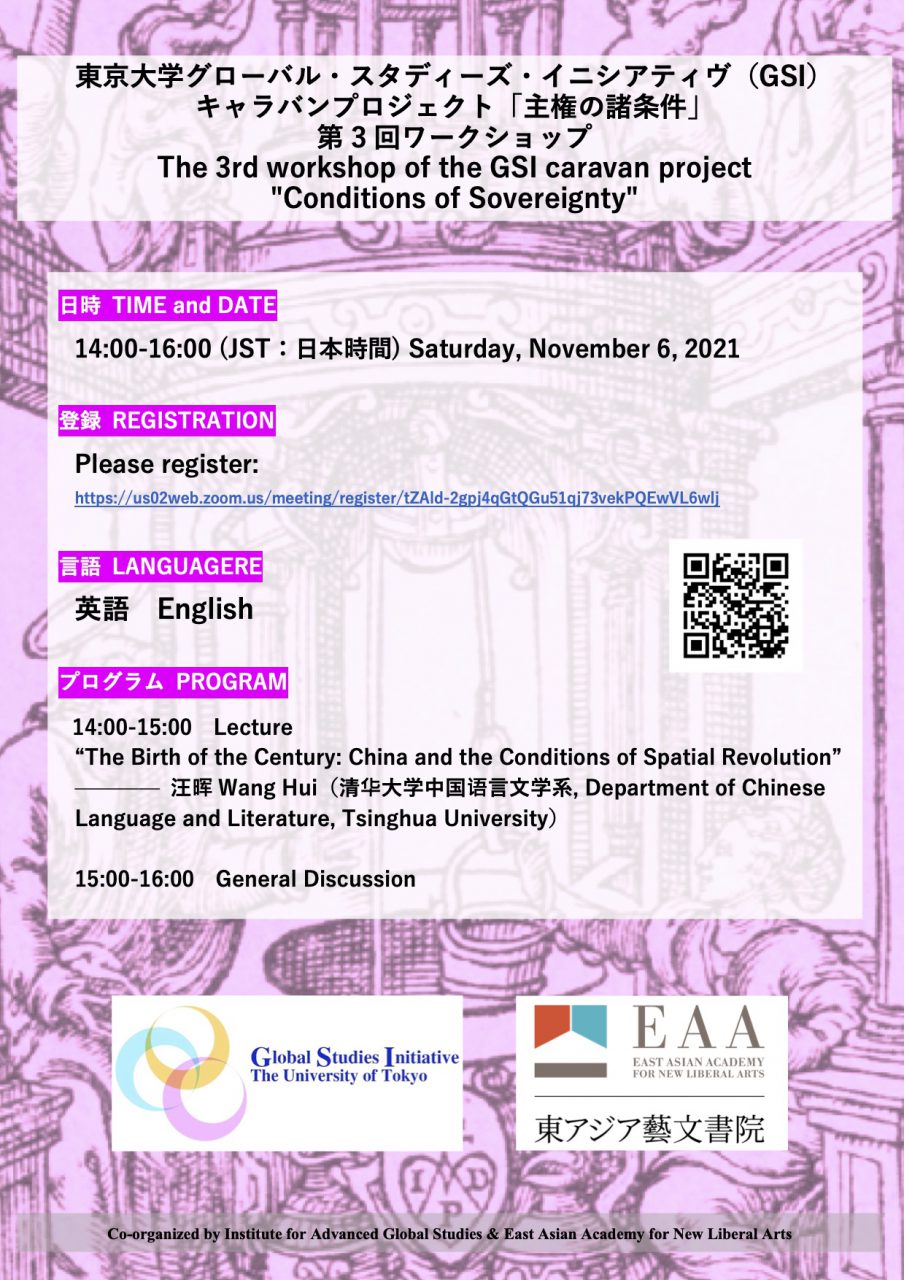
【日時】2021年11月6日(土)14:00-16:00(日本時間)
2021年11月6日(土)13:00-15:00(北京時間)
【場所】Zoom(要事前登録)
こちらよりご登録ください。
【言語】英語
【プログラム】
14:00-15:00 Lecture
“The Birth of the Century: China and the Conditions of Spatial Revolution”
———— 汪晖 Wang Hui(清华大学中国语言文学系, Department of Chinese Language and Literature, Tsinghua University)
15:00-16:00 General Discussion
【講演概要】
By tracking down the birth of the category of “the 20th century” and its complicated relationship with how Chinese intellectuals analyze the imperialism before and after 1900, the paper establishes a close connection of modern China’s “century” consciousness with the 20th century. What distinguishes the 20th century from all the past centuries is not just chronological division, but rather the comprehension of a singular situation. In this historical moment, people have to contemplate on the issues of Europe and the entire world in the 18th and 19th centuries or even earlier, and create China’s own version of pre-modern history to locate China’s unique position in the global landscape.
After analyzing the global conditions of the imperialist era, the author argues that the birth of the “short twentieth century” should start by seeking the revolutions in “weak links.” Unlike the prospects that Marx had charted out for Europe’s revolutions and counterrevolutions of the 18th and 19th centuries, those of the twentieth century occurred within a spatial revolution. In other words, they took place within the synchronized temporal relations of the century’s multiple temporalities.
In the condition of the temporal and spatial revolution, a remarkable cultural and political phenomenon of the 20th century is the traversal of concepts. That is, in the synchronic framework, concepts created to describe reality at a certain point in time are used to describe reality at a different point in time, and these concepts, such as state, sovereignty, people, class, citizen, political party etc., no longer have the same definitions as they have in their European original. When these unfamiliar concepts are extrapolated to historical conditions different from their origin, they not only spawn new consciousness, value and action, but also new political logic. Therefore, without an inner vision of the Chinese revolution, it would be difficult to explain the significance of the 20th-century China.








